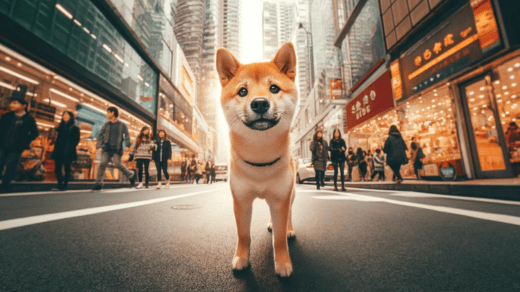Shiba Inu Diet and Nutrition: Feeding Your Dog for Optimal Health

Feeding your Shiba Inu a balanced and nutritious diet is crucial for maintaining their health and vitality. Shiba Inus are active, intelligent dogs with specific dietary needs that help them thrive. This guide will provide an overview of the best diet and nutrition for Shiba Inus, including recommended foods, portion sizes, feeding schedules, and tips for managing dietary concerns and food allergies.Recommended Foods for Shiba Inus
1. High-Quality Commercial Dog Food:
- Look for dog food that lists meat as the first ingredient. Quality sources include chicken, beef, lamb, and fish.
- Avoid dog foods with fillers like corn, soy, and wheat, as well as artificial preservatives, colors, and flavors.
2. Protein-Rich Diet:
- Shiba Inus thrive on a diet rich in animal-based proteins. Protein supports muscle development and overall health.
- Consider foods with a balanced ratio of protein, fats, and carbohydrates.
3. Healthy Fats:
- Include healthy fats such as omega-3 and omega-6 fatty acids to promote a shiny coat and healthy skin.
- Fish oil and flaxseed oil are excellent sources of these essential fats.
4. Fruits and Vegetables:
- Add fruits and vegetables like carrots, blueberries, sweet potatoes, and spinach to provide essential vitamins and antioxidants.
- These can be mixed with their regular food or given as treats.
Portion Sizes and Feeding Schedules
1. Portion Sizes:
- The amount of food your Shiba Inu needs depends on their age, weight, activity level, and metabolism.
- Follow the feeding guidelines on the dog food packaging as a starting point, and adjust based on your dog’s needs.
- Consult your vet for personalized portion recommendations.
2. Feeding Schedule:
- Puppies: Feed three to four times a day until they are six months old.
- Adults: Feed twice a day, once in the morning and once in the evening.
- Maintain a consistent feeding schedule to help regulate your Shiba Inu’s digestion and energy levels.
When considering a name for your Shiba Inu, you might find inspiration from Shiba Inu names. Choosing a name that reflects their spirited and loyal nature can enhance your bond and make feeding times more enjoyable.Managing Dietary Concerns and Food Allergies
1. Identifying Food Allergies:
- Common symptoms of food allergies include itching, skin irritations, ear infections, and gastrointestinal issues.
- If you suspect a food allergy, consult your vet for an elimination diet to identify the allergen.
2. Hypoallergenic Dog Food:
- If your Shiba Inu has food allergies, consider switching to a hypoallergenic dog food that contains novel proteins and limited ingredients.
- Options like venison, duck, or hydrolyzed protein formulas can help manage allergies.
3. Avoiding Harmful Foods:
- Some human foods are toxic to dogs, including chocolate, grapes, raisins, onions, garlic, and avocados. Ensure these are kept out of reach.
- Educate family members and guests about not feeding your Shiba Inu table scraps or potentially harmful foods.
4. Regular Vet Check-Ups:
- Regular vet visits are essential for monitoring your Shiba Inu’s health and nutritional needs.
- Your vet can provide guidance on dietary adjustments based on your dog’s age, health, and activity level.
Conclusion
Providing a balanced and nutritious diet is key to keeping your Shiba Inu healthy and happy. By choosing high-quality foods, maintaining proper portion sizes, and being aware of potential dietary concerns and allergies, you can ensure your Shiba Inu thrives. Regular vet consultations will help tailor their diet to their specific needs, contributing to a long and vibrant life.




